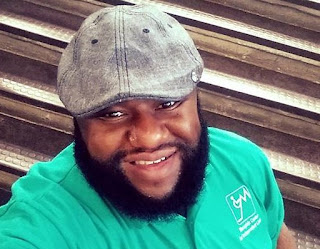 By Timothy Redd
By Timothy ReddMonday, January 30th I attended an Affirmatively Furthering Fair Housing (AFFH) training session hosted by The City of Memphis. The presenters at this event were Jeffrey May and Michael D Mitchell. The workshop covered the history of laws of policies relevant to fair housing, what the AFFH is, and why it is important. The training also covered the AFFH rule, what the rule requires and compliance with the rule. There was also a session that covered how to access data to see key demographics of the city as well as nationwide.
What is the AFFH Rule and why is it important?
Affirmatively Furthering Fair Housing is a legal requirement that federal agencies and federal grantees further the purposes of the Fair Housing Act. This obligation to affirmatively further fair housing has been in the Fair Housing Act since 1968 (for further information see Title VIII of the Civil Rights Act of 1968, 42 U.S.C. 3608 and Executive Order 12892).
AFFH means "taking meaningful actions, in addition to combating discrimination, that will overcome patterns of segregation and foster inclusive communities free from barriers that restrict access to opportunity based on protected characteristics. Specifically, affirmatively furthering fair housing means taking meaningful actions that, taken together, address significant disparities in housing needs and in access to opportunity, replacing segregated living patterns with truly integrated and balanced living patterns, transforming racially and ethnically concentrated areas of poverty into areas of opportunity, and fostering and maintaining compliance with civil rights and fair housing laws. The duty to affirmatively further fair housing extends to all of a program participant's activities and programs relating to housing and urban development."
The Fair Housing Act of 1965 and FHA Amendments Act of 1988 covers seven classes at a federal level: race, color, religion, national origin, familial status, gender, and disability. From what I learned this rule is about choice and empowering people to live where they want and no longer being limited because of income to certain areas.
Why does this matter to the Disability Community?
Segregation Affects the Disability Community
- People with all kinds of disabilities deserve access to the same range of housing choices as people without disabilities.
- Government resources have created segregated settings for people with disabilities and limited housing choice
- Housing and social policies have forced people with disabilities to live with family and not independently
- Costly and segregated institutional settings
- Discrimination in Housing against People with Disabilities is Rampant; 44% of housing discrimination cases filed with National Fair Housing Alliance (NFHA) members in 2011 involved discrimination against people with disabilities. (NFHA 2012 Fair Housing Trends report)
- Racial – about 20% of cases
- Familial status-13% of cases
- National origin and gender – about 5% of cases each
How will this rule change that?
Housing resources are very limited in this city and very scarce for people with disabilities who need low-income housing. Many subsidized housing projects have waiting lists and age requirements. For people who are not yet 62 years old, finding housing this is a huge challenge. This new rule being implemented requires the recipients to do an analysis on the community. The analysis should show things like where people with disabilities live and what type of disabilities people have. The analysis will allow access to poverty troubled areas and race demographics through data mapping tools.
When new housing is developed analysis reports have to be submitted to HUD and meet the criteria for approval. This requirement will give more housing options countywide because the focus now is about inclusiveness and the eradication of poverty which will create vital living spaces.
To learn more about The Affirmatively Furthering Fair Housing and to see the data maps as well check out https://www.hudexchange.info/programs/affh/
My Thoughts
The time for true integrated affordable accessible housing is long overdue. The seven federally protected classes have been segregated for far too long. I think if the rules of the program are enforced it will help so many people and make our city better.
I also think that when different community engagement opportunities are happening, it is critical that we as the community of people with disabilities attend to have our say and have a seat at the table. At this training workshop, I was the only person with a noticeable disability. I would implore us all to make an effort to be more visible in our communities and make sure we are speaking up and speaking out. Advocacy is powerful!

No comments:
Post a Comment